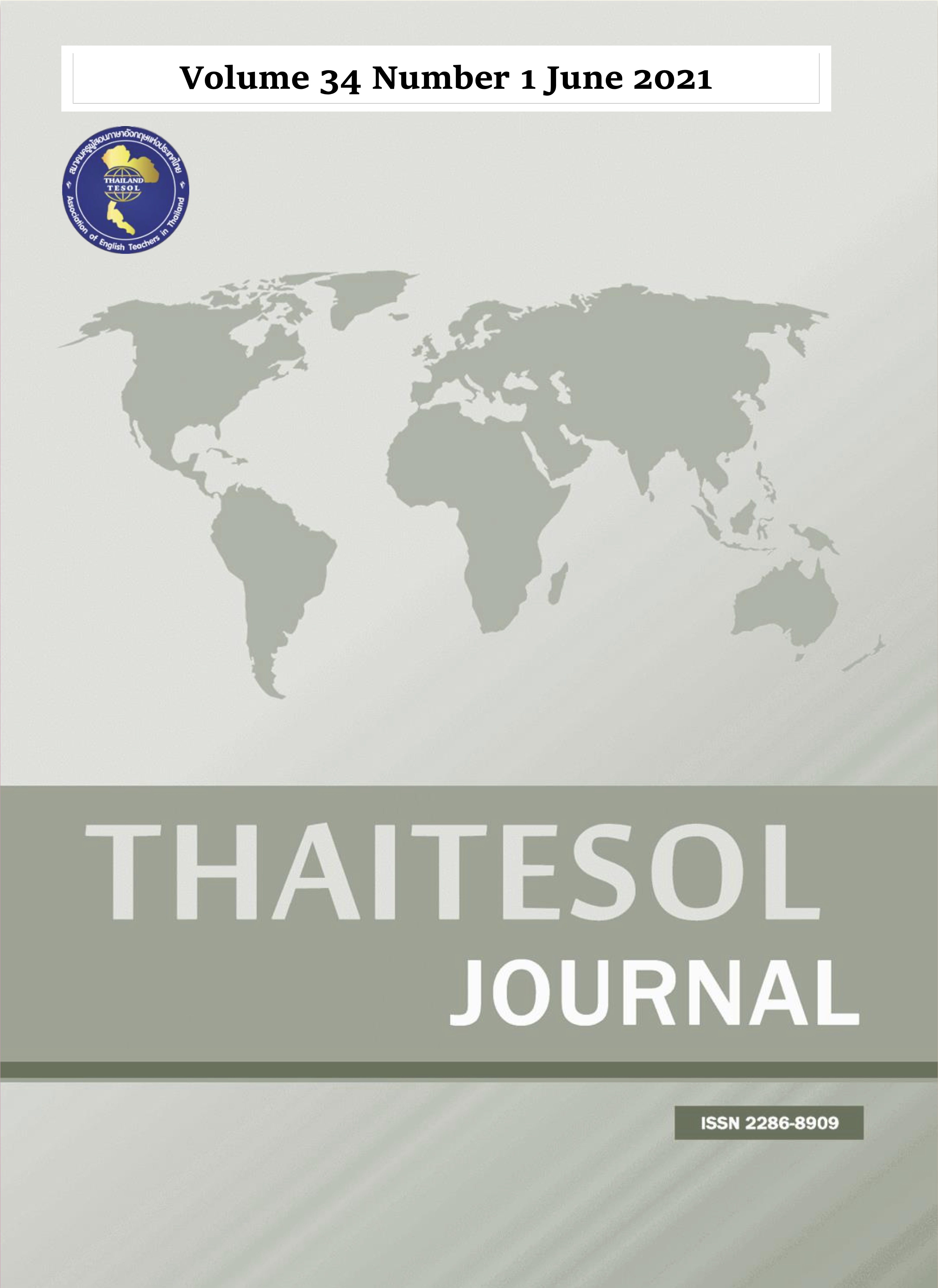Collaborative Autoethnography: A Case as Course Developers and Trainers for English for the Front Office
Main Article Content
Abstract
Assigned by Mars Bureau (pseudonym) to develop and implement the first mega training project in Thailand to prepare tourism professionals for the ASEAN Economic Community (AEC) job market, we conducted English for Specific Purposes (ESP) literature review to run this mega project. However, in a tourism context, we encountered several challenges during the project development and implementation. This present study, therefore, aims to share our challenging experiences, discover how we overcame them, and determine what lessons we learned. Our methodology was a strategy of narrative inquiry utilizing collaborative autoethnography. The data were two personal written stories guided and intersected by content (interaction, time, and place) and context (micro, meso, and macro) theories through self-reflection from the beginning until the end of project. The data were digitally coded, categorized, and themed with NVivo 12 (qualitative software) following two manual rounds of process coding to support the NVivo 12 results. The findings revealed six categorical issues (internal issues, trainee issues, Mars Bureau representatives, unclear instructions, miscommunication, and plan change, change plan) reaching the theme ‘Program Management Challenges’ followed by how we overcame them. The study implications are a reminder for those implementing a mega project to be aware of possible emerging challenges and for a novice researcher to apply suitable methods to their future narrative inquiry project.
Article Details
Materials in THAITESOL JOURNAL may be photocopied for educational purposes. Under no circumstances may any part of this journal be photocopied for commercial purposes.


